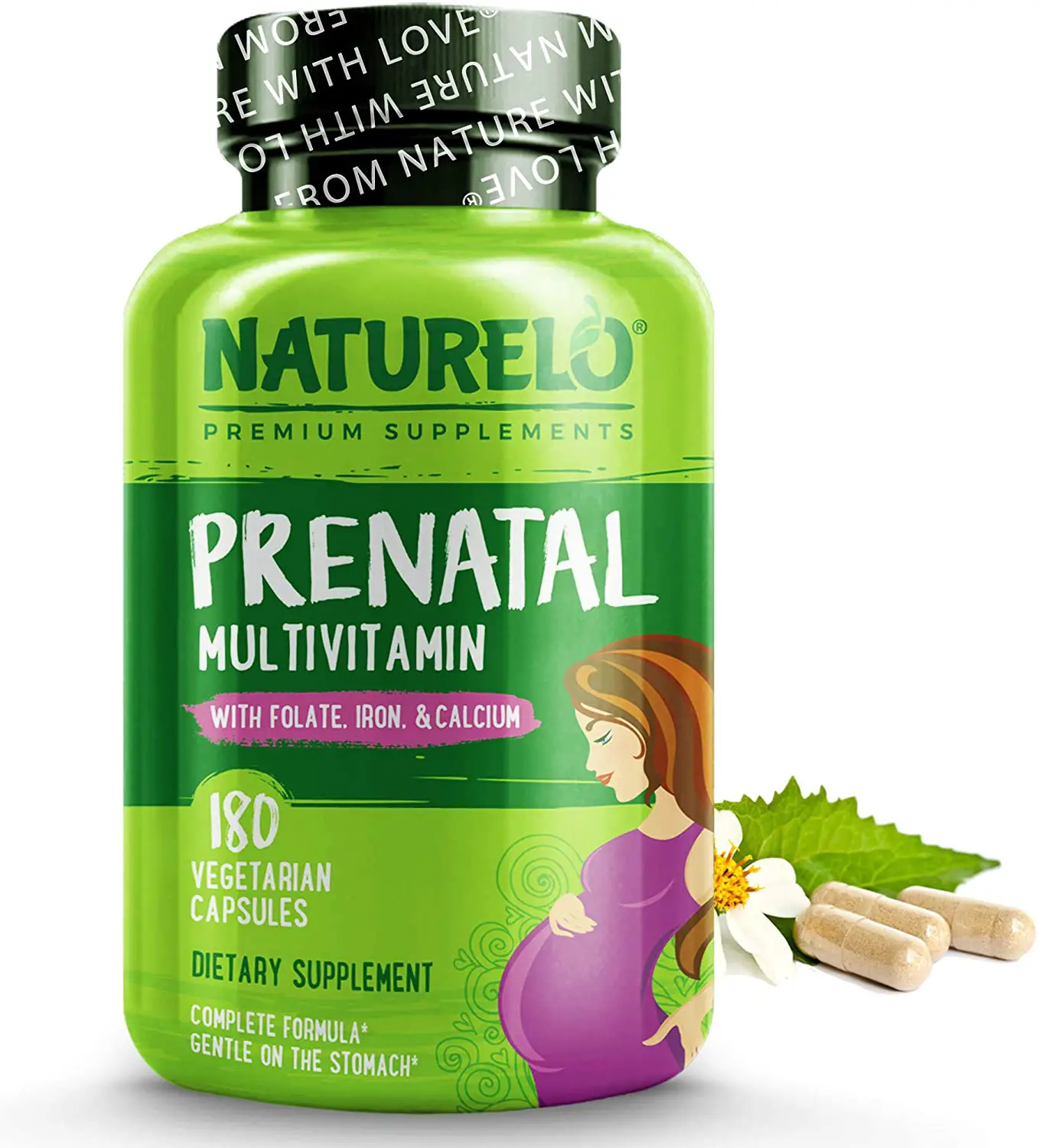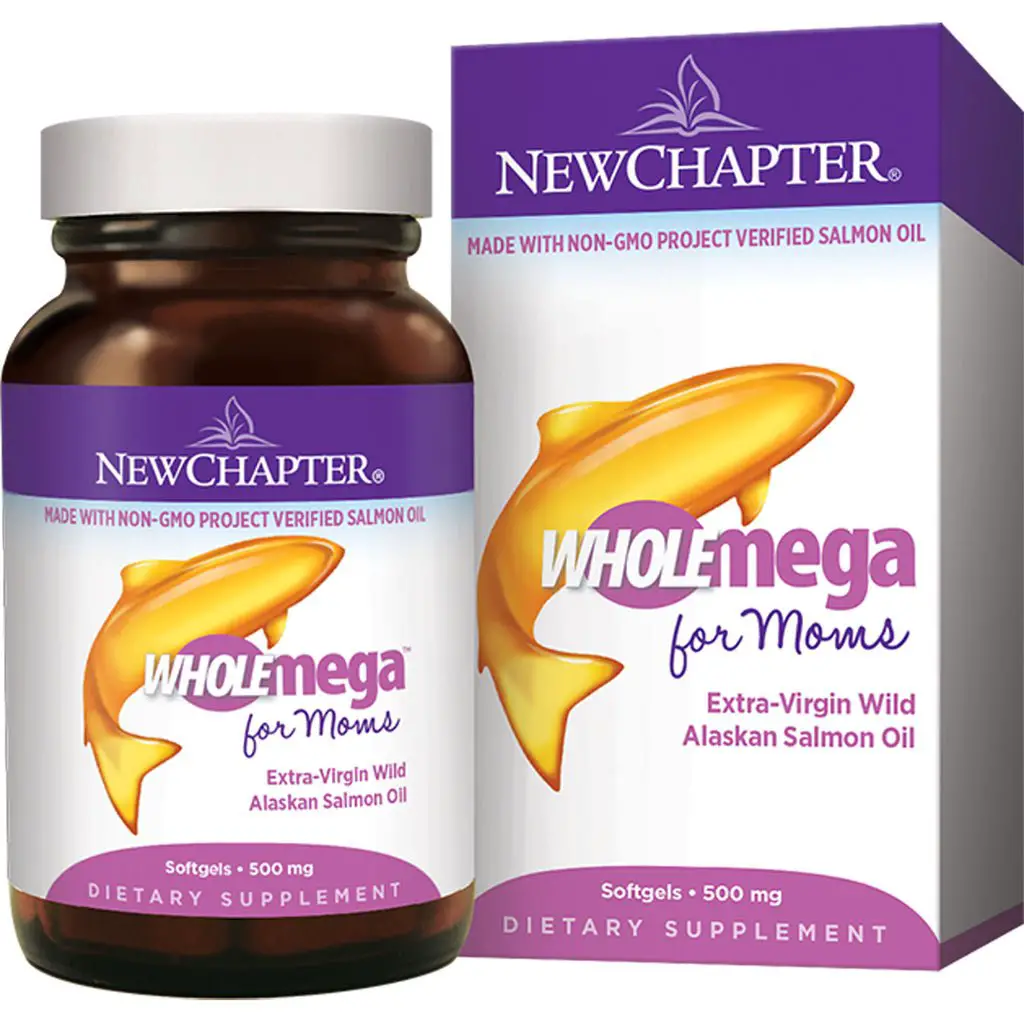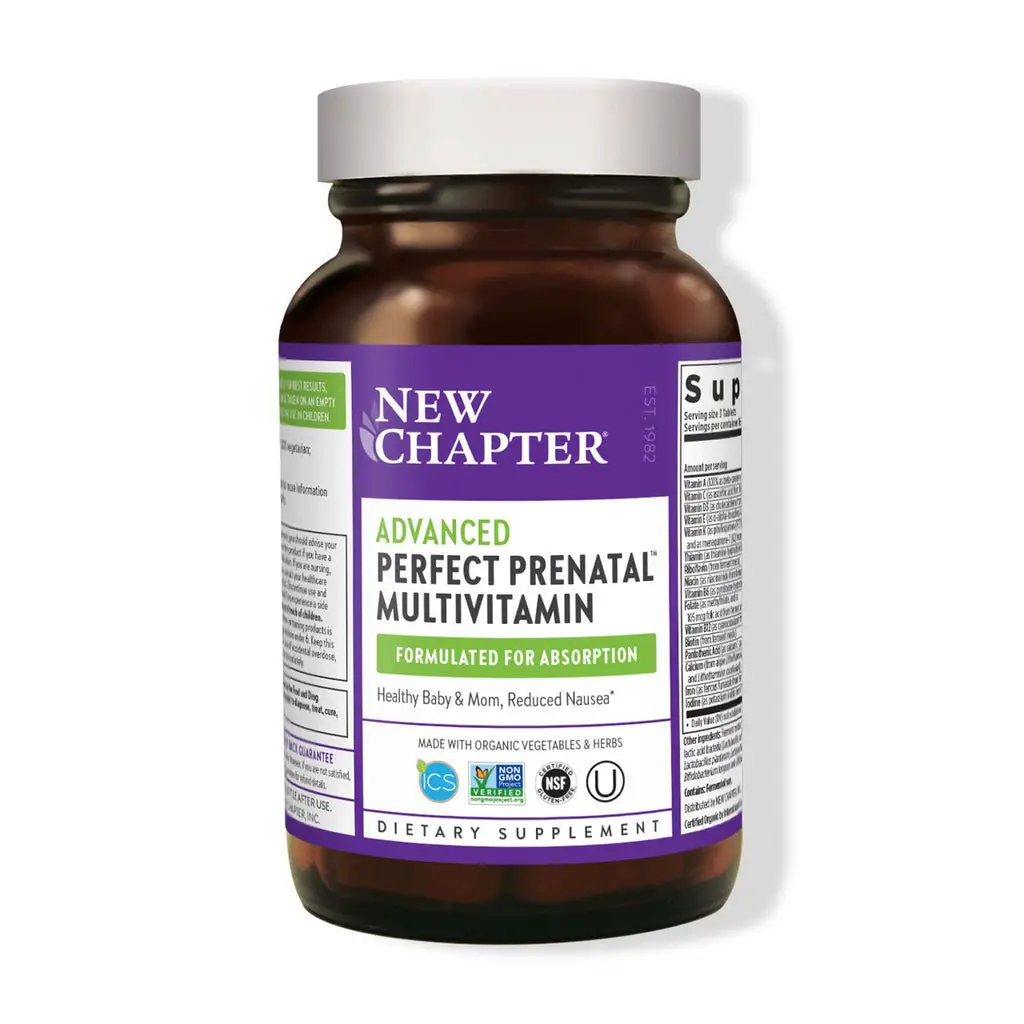Nature Made Prenatal Multivitamin
| Buy on LuckyVitamin |
Ingredients: The Nature Made Prenatal contains essential vitamins and minerals, including folic acid, calcium, iron and vitamin D. These vitamins provide 200 milligrams of DHA to support fetal brain and eye development, making them ideal for pregnant women and women trying to get pregnant.
What we like: Nature Made Prenatal multivitamins are free of preservatives, synthetic dyes and gluten, and the company states its Prenatal Multi + DHA multivitamin is clinically proven for absorption into the body.
What to consider: While these prenatal vitamins offer complete prenatal multivitamin support, they do have a strong smell that many LuckyVitamin reviewers found unpleasant or fishy.
What Are The Benefits Of Prenatal Vitamins
Prenatal vitamins offer benefits for both mom and baby, including:
- Reduce risk of birth defects. Perhaps the most important reason to take a prenatal vitamin is for the folic acid it contains. Studies show that getting enough folic acid and B12 before sperm meets egg and in the early stages of pregnancy can dramatically reduce the risk of neural tube defects along with congenital heart defects in your developing baby.
- Cut back on nausea. Vitamin B6 helps to reduce nausea and research has shown that women who take a daily multivitamin containing at least 10 mcg of B6 before conception and/or during the first few weeks of pregnancy experience less nausea during the first trimester.
- May reduce the risk of autism. Several studies have shown that babies of moms who regularly took prenatal vitamins before and during pregnancy may be less likely to have autism spectrum disorder.
- Help prevent preterm birth. Taking a prenatal vitamin throughout pregnancy has been linked to lower risk of preterm birth. That’s perhaps especially due to the vitamin B12 they contain, since B12 deficiency is associated with lower birth weight and preterm birth.
When Is The Best Time To Take A Prenatal Vitamin
This one really depends. If your prenatal contains iron, it may cause tummy woes esp if you take it on an empty stomach. Generally, taking a vitamin with food is best regardless of which meal that is for you. When in doubt, follow the instructions on the product packaging or ask your OB-GYN during your next visit.
Read Also: Will Prenatal Vitamins Help Get Pregnant
Is Cod Liver Oil Safe
There are some concerns around vitamin A during pregnancy. While some birth defects have been associated with vitamin A, those studies assessed the effects of large amounts of the synthetic form of vitamin A versus what is naturally found in cod liver oil and beef liver.
Women have been eating liver and cod liver oil for thousands of years, many times under their doctors orders.Whats more? Studies suggest cod liver oil could be great for a variety of ailments, from arthritis to cognitive performance. It only makes sense that those potential benefits would continue during pregnancy. Of course, you should check with your midwife or OB-GYN to see whats best for you during your pregnancy.
What Are Prenatal Vitamins And Why Do You Need Them

All women who are pregnant or trying to becoming pregnant need a prenatal vitamin, as they’re a key source of nutrients for your body and for your growing baby, says Romy Block, M.D., a board-certified specialist in endocrine medicine and co-founder of Vous Vitamin.
Just like your everyday multivitamin, prenatal vitamins are meant to fill the gap on nutrients you may be missing or need to boost while pregnant . Plus, these gummies and pills are packed with extra vitamins and nutrients that your body needs to grow a healthy baby.
For example, folate or folic acid is particularly important before and during pregnancy, as it helps prevent major birth defects of the fetus’ brain and spine, according to the American College of Gynecology . While you can get folic acid from foods like spinach, Brussels sprouts, and asparagus, it may be hard to reach the recommended daily amount from just noshing on these green veggies.
Another good example? Calcium. If you don’t have enough calcium to support your baby’s skeletal growth, the fetus can potentially draw what it needs from your own bones, according to the National Institute of Health . So, a prenatal vitamin can help complement your diet to help you get the optimal amounts of nutrients that are key for both your health and the baby’s.
You May Like: What Vitamins Are Best To Boost Your Immune System
When Do I Need To Start Taking Prenatal Vitamins
Start taking folic acid at least 1 month before you start trying to get pregnant. The first few weeks of pregnancy are a really important time for fetal health and development. Taking folic acid and other prenatal vitamins can help reduce the risk of some birth defects. Keep taking prenatal vitamins throughout your entire pregnancy.
Smarty Pants Organics With Probiotics Prenatal Formula
Why its great: This prenatal gummy vitamin has a fusion of all the necessary vitamins and minerals to support your body and your babys growth. Plus, it gets bonus points for being vegan AND organic for expecting moms with specific dietary needs. SmartyPants created this mint-flavored formula with morning sick moms in mind, as it is easy on the stomach. This is also one of the few prenatal vitamins made with probiotics. But, SmartyPants makes a similar multivitamin to support healthy pregnancies without probiotics too, as not all moms are looking for digestive/gut health help.
Keep in mind: Some moms have found the minty flavor too powerful for their taste but generally the flavor is well received.
Good for: Women that want a prenatal vitamin that also contains probiotics.
Don’t Miss: How Many Vitamins C Should I Take A Day
How Do I Choose A Prenatal Vitamin
First, look at whats in it. Ideally, choose a prenatal vitamin that contains micronutrients that are important to promote fetal development and maternal health, says Dr. Samuel. The most famously important of these is folic acid, which reduces the risk of neural tube defects . A 2018 meta-analysis in Archives of Gynecology and Obstetrics found that taking folate or folic acid supplements during pregnancy might also lower the risk of preeclampsia, a condition of abnormally high blood pressure which can be risky for the parent and fetus.
The food-based version of folic acid is folate, but supplementation is key during pregnancy because it can be difficult to get enough folate through food. Luckily, youd be hard-pressed to find a prenatal that isnt rich in this nutrient.
Prenatal vitamins with iron are also super important, as iron promotes the health and development of the placenta. You also want ones that are easy on the GI system and affordable, says Dr. Samuel, since youll be taking these every day for at least nine months.
Beyond that? I look specifically for prenatals that contain vitamins A, B, C, D, E, zinc, and iodine, says Dr. Samuel. Get one that contains those, folate, and DHA , and youll be in great shape for your reproductive life.
Frequently Asked Questionsexpand All
-
Birth defects, especially neural tube defects
Folic acid, also known as folate, is a B vitamin that is important for pregnant women. Folic acid may help prevent major birth defects of the fetuss brain and spine called neural tube defects .
When you are pregnant you need 600 micrograms of folic acid each day. Because its hard to get this much folic acid from food alone, you should take a daily prenatal vitamin with at least 400 micrograms starting at least 1 month before pregnancy and during the first 12 weeks of pregnancy.
Women who have had a child with an NTD should take 4 milligrams of folic acid each day as a separate supplement at least 3 months before pregnancy and for the first 3 months of pregnancy. You and your ob-gyn or other obstetric care provider can discuss whether you need to supplement with more than 400 micrograms daily.
Iron is used by your body to make the extra blood that you and your fetus need during pregnancy. Women who are not pregnant need 18 mg of iron per day. Pregnant women need more, 27 mg per day. This increased amount is found in most prenatal vitamins.
Calcium is a mineral that builds your fetuss bones and teeth. Women who are age 18 or younger need 1,300 mg of calcium per day. Women who are 19 or older need 1,000 mg per day.
Give you energy
Read Also: Which Vitamin Is Good For Immunity
You May Like: What Can I Take For Vitamin D
Benefits Of Taking Prenatal Vitamins
Here are some of the benefits of taking prenatals:
- Provides nutrients despite your appetite . The first tri is always a doozy. When we werent constantly nauseous, the only things we could stomach were carbs, carbs, and more carbs. Give us all the french fries, plz but actually dont, because if we see that much food at one time, were gonna vom. So, despite the roller coaster that is your appetite during pregnancy, your prenatal provides a consistent and reliable source of nutrients.
- Helps prevent health concerns in baby. Weve already talked about folate and developmental issues for a fetus, but there are other health concerns caused by a lack of nutrients too although their cause may be a bit harder to pinpoint in some cases, after the baby is born. Regardless, it provides what your baby needs to keep them growing.
- Keeps your body healthy while baby grows. Growing a baby is demanding, and when the placenta finds itself a little short of something, it will just straight up take that from the birthing parents body to make sure the little one gets what it needs. A prenatal helps ensure that youve got what you need and babys got what they need. Optimizing the mothers nutritional status with key micronutrients is critical to ensuring her body is resilient during and after pregnancy, Swick explains.
Vitamin Code Raw Prenatal
Vitamin Code is another popular food-based prenatal. It is non-GMO, contains no fillers, and is processed at low heat for optimal nutrient retention. It is strong in vitamin C, iodine, iron, and all of the vitamin Bs. It contains double the vitamin D3 of most prenatals, but it is lower in vitamin K, which can be problematic for good calcium absorption. Its also lower in zinc and copper, important trace minerals.
Some moms cant take this formula because they are allergic to one of the many food ingredients, like seeds and grains. Another drawback is that you have to take this prenatal vitamin three times per daya definite inconvenience for some. Find them here.
Read Also: Does Vitamin D Cause Nausea
Can I Take Prenatal Vitamins If Im Vegetarian Or Vegan
Definitely. In fact, many prenatals are at least vegetarian, if not vegan-friendly. To remove all doubt, look for one thats certified vegan somewhere on the label, it will have a V inside of a circle.
Some nonvegan ingredients to watch out for include fish oil, as well as softgel capsules sometimes theyre made from bovine collagen instead of plant-based ingredients.
Best Prenatal Vitamins: Food

Food-based prenatals are more absorbable and gentler on the stomach, because they are derived from food instead of isolated vitamins. In fact, many women who suffer from constipation or nausea while on conventional prenatal vitamins during pregnancy see a significant improvement when switching to food-based prenatals. Because they are derived from food, these prenatal blends contain the enzymes, phytonutrients, and other co-factors that make the vitamin most absorbable and add to the spectrum of nutrition. Many also include probiotics and herbal blends, too.
The downside to food based prenatals is that they are more expensive and have lower levels of each vitamin and mineral than a synthetic vitamin. However, because they are thought to be more highly absorbable than synthetics, this isnt a deal-breaker.
Heres a comparison of food-based prenatals:
Read Also: What Is The Best Vitamin D Supplement For Adults
The 5 Best Prenatal Vitamins Before Pregnancy Of 2022
The specialists recommend that women who want to be pregnant should begin to have a healthy diet program three months before pregnancy. In this period taking prenatal vitamins before pregnancy is very important.Consumption of prenatal vitamins is vital for the natural growth and maturation of all organs and parts of the fetus. With the right diet and vitamin supplements, you can be sure that you have no deficiencies in your body and that you are ready for a normal pregnancy.
There are different prenatal vitamins in different compounds and amounts. It is better for pregnant women to know about the properties of different minerals and vitamins and choose the best one. Also read article best calcium supplements for pregnancy.
When To Start Taking Prenatal Vitamins
The best time to start taking prenatal vitamins is before conception. Folic acid is especially important. You should begin taking a folic acid supplement at least 1 month before you try to get pregnant to prevent birth defects.
Some doctors recommend that all women who could have a baby take prenatal vitamins, even if they dont plan a pregnancy.
Recommended Reading: Does My Dog Need Vitamins
Can I Get The Same Nutrients From My Diet
Technically, yes but that would require a lot of planning and, TBH, a lot of salads and animal protein.
Dont get us wrong, you absolutely should strive for a balanced and healthy diet for you and your tater tot, but its still a good idea to take a prenatal to ensure all of your nutritional bases are covered.
What About Synthetic Prenatal Vitamins
These are the ones you can get at most drug stores. They are a complete cross-spectrum of nutrients, but they are created in a laboratory with vitamin isolates separated from the natural co-factors like phytonutrients that help your body absorb or utilize the vitamin.
These synthetic vitamins are shown to be nutritionally inferior to natural vitamins and can cause digestive issues.
- Synthetic vitamin E can be especially problematic. Research has linked synthetic vitamin E to DNA damage to the liver, prostate cancer in men, and congenital heart defects in babies born to women taking large doses of vitamin E.
- And while beta-carotene is an important precursor to vitamin A, its synthetic form can cause problems. Researchers found that high amounts of synthetic beta-carotene may actually block some of the mechanisms of vitamin A in the body.
Whole, natural foods contain a variety of vitamins, minerals, and phytonutrients that work together to be absorbed and utilized. When vitamins are isolated like they are in synthetic vitamin blends, your body may utilize some of the vitamins but deplete others.
Don’t Miss: What Vitamins Increase Your Immune System
Zahler Prenatal + Dha
Review Highlights: Zahler Prenatal + DHA is one of the better prenatal vitamins out there. Its got a lot of the ingredients you want to see in a prenatal and in the right amounts. They also offer a standard 30-day guarantee through Amazon. While the pills are a little large and I get a little nauseous when I first take them, overall this is a really good prenatal. Read the full review here or
Megafood Baby & Me 2 Prenatal Multi
At the upper end of the price spectrum is the MegaFood Baby & Me 2 Prenatal Multi. This prenatal supplement uses ingredients derived from natural sources, a fact that MegaFood claims makes it easier for the body to digest.
Like the Garden of Life multivitamin, the MegaFood Baby & Me 2 is a good option for those with dietary restrictions as it’s gluten-, soy-, and dairy-free vegetarian non-GMO and Kosher. There’s no DHA in this one, but it can be paired with the MegaFood Baby & Me 2 Prenatal DHA and Choline supplement, sold separately.
Read Also: Is Vitamin B12 Good For Memory Loss
Look For Highly Absorbable Forms Of Nutrients
Like Swick mentioned above, look for formulations designed to be highly bioavailable and easy to use and absorb. AND, dont buy the most high quality, bioavailable, hockey puck-sized prenatal if you HATE swallowing pills.
Consider what you like and what youre able to tolerate during your pregnancy, keeping in mind that there are tons of gummy and liquid options available now.
What Is Vitamin D

Vitamin D helps your body absorb calcium. It also helps your bodys nerves, muscles and immune system work. Your immune system protects your body from infection. Vitamin D helps your babys bones and teeth grow.
During pregnancy, you need 600 IU of vitamin D each day. You can get this amount from food or your prenatal vitamin. Good sources of vitamin D include:
- Fatty fish, like salmon
- Milk and cereal that has vitamin D added to it
You May Like: How Much Vitamin C Should You Take Everyday
Garden Of Life Mykind Organics Prenatal
The makers say that they offer this specially formulated blend for pre-conception, pregnancy, and lactation support. With 18 mg of iron and 800 mg of folate, this vegan, gluten-free product helps support neural tube development, the company say. They also report that the ingredients including selenium and vitamins C, D3, E, K, and B12 come from more than 30 fruits, vegetables, and herbs. There is also an organic stomach-soothing blend that includes lemon, tomato, ginger, and peppermint.
Online reviews are positive, but some report side effects and poor purity. A person might also require an additional calcium supplement.